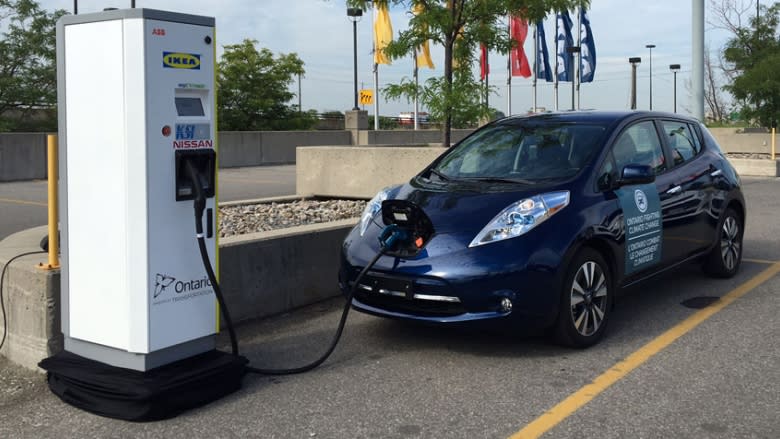Electric car travel given a boost in Manitoba, Ontario

The drive from Winnipeg to Ontario is going to get a little smoother for electric car owners.
Toronto-based company eCamion is investing $17.3 million in the installation of 34 fast-charging stations along the Trans-Canada Highway by 2019.
Natural Resources Canada is partially funding the public-private investment with a $8 million repayable contribution through the Energy Innovation program.
"I think it's terrific," said Robert Elms, president of the Manitoba Electric Vehicle Association.
Elms said the current infrastructure between Manitoba and Ontario isn't practical for electric car owners looking to make the trek. It's mostly level 2 chargers, which can take up to 10 hours to power up a car. Currently, the fastest chargers are level 3, which take 30 minutes to an hour.
But the new stations are purported to be even faster, taking as little as 20 minutes.
The hope is that will help eliminate the "range anxiety" electric car owners can get when driving long distances.
"Vehicles will be able to power up during peak hours using off-peak energy and continue on their journey in a relatively similar amount of time it would take to fuel a fossil-fuel vehicle, grab a snack and visit a bathroom," said Bryan Urban, executive vice president of Leclanché North America and president of Fast Charge, a new join joint venture between eCamion and Leclanché.
Fast Charge said in a release that using large-format lithium-ion batteries, pre-loaded with charges, will enable faster charging than plugging in to the power grid. Each station will be able to charge three cars at once.
Fast Charge said it has started work on demonstration units and hopes manufacturing on the new turbo charging stations will start in the first four months of 2018.
The 34 new stations will have 102 charging units spaced about 100 kilometres apart along 3,000 kilometres of the Trans-Canada Highway. The precise locations are yet to be determined.
The charging stations are expected to reduce greenhouse gas emissions by an estimated 0.7 million tons over the first five years of operation.
"It's marvellous," said Elms.
The project is scheduled to be done by the first quarter of 2019.
According to a 2016 study out of Simon Fraser University, only about 125 electric cars are registered in Manitoba, 0.2% of all cars on the road. Ontario has 7,248 (0.7%).

 Yahoo Finance
Yahoo Finance 